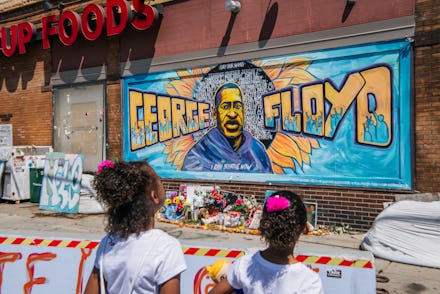Derek Chauvin has been sentenced to 22 and a half years in prison for murdering George Floyd

Former Police Officer and convicted murderer Derek Chauvin was sentenced to 22.5 years behind bars on Friday for killing George Floyd, an unarmed Black man, on a South Minneapolis street corner, in full view of an aghast public last spring.
"What the sentence is not based on is emotion, and sympathy," Hennepin County District Judge Peter Cahill cautioned before reading the sentence, noting that his decision is based solely on legal interpretation. Nevertheless, he acknowledged the "pain" felt by everyone whose lives have been changed after the death of George Floyd.
The sentencing was preceded with the impact statements from a number of affected parties, including George Floyd's daughter Gianna who described how her father used to help her brush her teeth, and added if she could say anything to her father, it would be that "I miss you and I love him."
Breaking down in tears, Floyd's brother Terrence described his last conversation with George, in which the pair planned playdates for their respective daughters.
"On behalf of me and my family, we seek the maximum penalty," an emotional Terrance Floyd told the court. "We don't wanna see no more slaps on the wrist. We've been through that already, in my community and my culture. We've been through that already."
Speaking briefly before his sentencing, Chauvin directly addressed the Floyd family, offering his "condolences" and hinting cryptically at some other unspecified "information in the future that will be of interest." The less than one minute of remarks were his first substantial time speaking since the start of the trial months earlier.
Prosecutors had initially petitioned Cahill to sentence Chauvin to 30 years in prison – well above the sentencing guideline recommendation of 15 years. In May, Judge Cahill indicated an openness to a harsher sentence, having determined that there were "aggravating factors" in Chauvin's murder of Floyd.
Earlier this month, Chauvin's attorneys filed a counter-petition asking that their client simply be placed on "probation" without any additional time in prison, citing "substantial and compelling circumstances" in the case of the first white police officer to be convicted of murdering a Black man in Minnesota history. Floyd's death in May, 2020, helped ignite a nation-wide movement for social, racial, and criminal justice, prompting intense — and overwhelmingly nonviolent — demonstrations across the country.
Chauvin had initially been charged with second-degree murder, third-degree murder, and second-degree manslaughter, and was convicted on all counts this past April. Friday's sentencing was specifically for the second-degree murder charge, the most serious of the three.
Among those carefully watching Chauvin's sentencing today is almost certainly his three fellow former-MPD officers, J. Alexander Kueng, Tou Thao, and Thomas Lane, each of whom were present and involved to varying degrees in Floyd's death. The trio is set to be tried as a group in late August. All four officers have also been indicted by a federal grand jury for violating Floyd's constitutional rights.
Just hours before Chauvin's sentence was announced, Judge Cahill rejected a request from Chauvin's legal team for a retrial, denying allegations that the court had somehow denied Chauvin a fair trial, and that there had been juror misconduct during the proceedings.
Following Friday's sentencing, Chauvin now has 90 days to file an appeal.